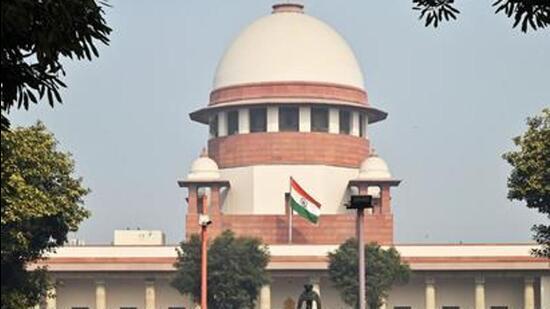
Calling someone ‘Miyan-Tiyan’ & ‘Pakistani’ not an offence: Supreme Court
In a recent ruling, the Supreme Court of India has dismissed a case filed against an 80-year-old man who was accused of hurling abuses at an Urdu translator in Jharkhand. The controversy surrounding the case revolves around the alleged use of derogatory terms, including “Miyan-Tiyan” and “Pakistani”. While the court acknowledged that these remarks may be in poor taste, it ruled that they do not constitute a criminal offence.
The case in question involves an 80-year-old man who was accused of using abusive language against an Urdu translator in Jharkhand. The translator, who was working on a project, alleged that the elderly man hurled abuses at him, including using the derogatory terms “Miyan-Tiyan” and “Pakistani”. The incident reportedly took place in 2020, and the translator subsequently filed a case against the man under Section 295A of the Indian Penal Code, which deals with acts intended to outrage religious feelings.
The Supreme Court heard the case and delivered its verdict, which has sparked a heated debate in the country. While the court acknowledged that the remarks made by the 80-year-old man may have been in poor taste, it ruled that they did not amount to hurting the religious sentiments of the translator. The court’s ruling was based on the fact that the alleged abuse was not directed at the translator’s religion or religious beliefs, but rather at his nationality and ethnicity.
The court’s decision has been met with mixed reactions from various quarters. While some have hailed the ruling as a victory for freedom of speech, others have criticized it for being insensitive to the translator’s feelings. The controversy has also raised questions about the limits of free speech in India and the need to balance individual freedoms with the need to prevent hate speech and discrimination.
In its ruling, the Supreme Court emphasized that while the remarks made by the 80-year-old man may have been offensive, they did not constitute a criminal offence. The court noted that the allegations of abuse were based on the translator’s claim that the man had used derogatory terms, but there was no evidence to suggest that the remarks were intended to insult or outrage the translator’s religious feelings.
The court’s decision is significant not only because of its implications for freedom of speech in India but also because it highlights the need to promote tolerance and understanding in a diverse society. In a country where religious and ethnic tensions are already running high, the court’s ruling serves as a reminder of the importance of respecting the feelings and beliefs of others, even if we do not agree with them.
The controversy surrounding the case also raises questions about the role of the judiciary in balancing individual freedoms with the need to prevent hate speech and discrimination. While the court’s decision to dismiss the case may be seen as a victory for freedom of speech, it may also be seen as a failure to address the underlying issues of discrimination and prejudice that are often perpetuated through hate speech.
In conclusion, the Supreme Court’s ruling that calling someone “Miyan-Tiyan” and “Pakistani” is not a criminal offence is a complex issue that highlights the need to balance individual freedoms with the need to prevent hate speech and discrimination. While the court’s decision may be seen as a victory for freedom of speech, it also serves as a reminder of the importance of promoting tolerance and understanding in a diverse society. As we move forward, it is essential that we continue to engage in constructive dialogue and work towards creating a society that is inclusive and respectful of all individuals, regardless of their religion, ethnicity, or nationality.
Source:






